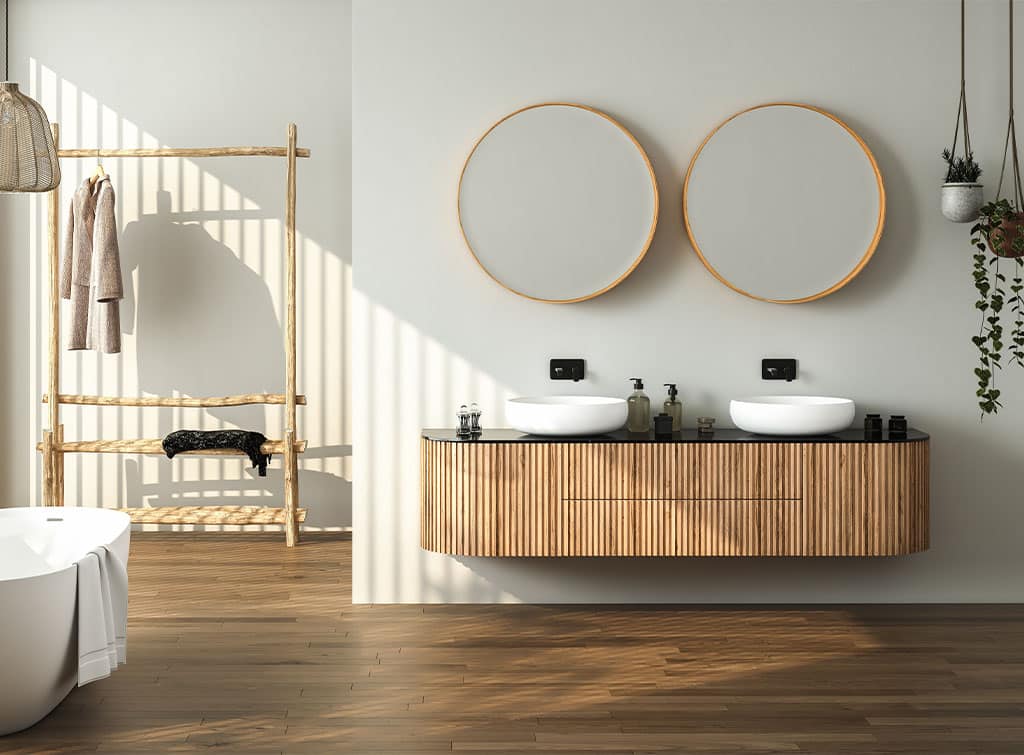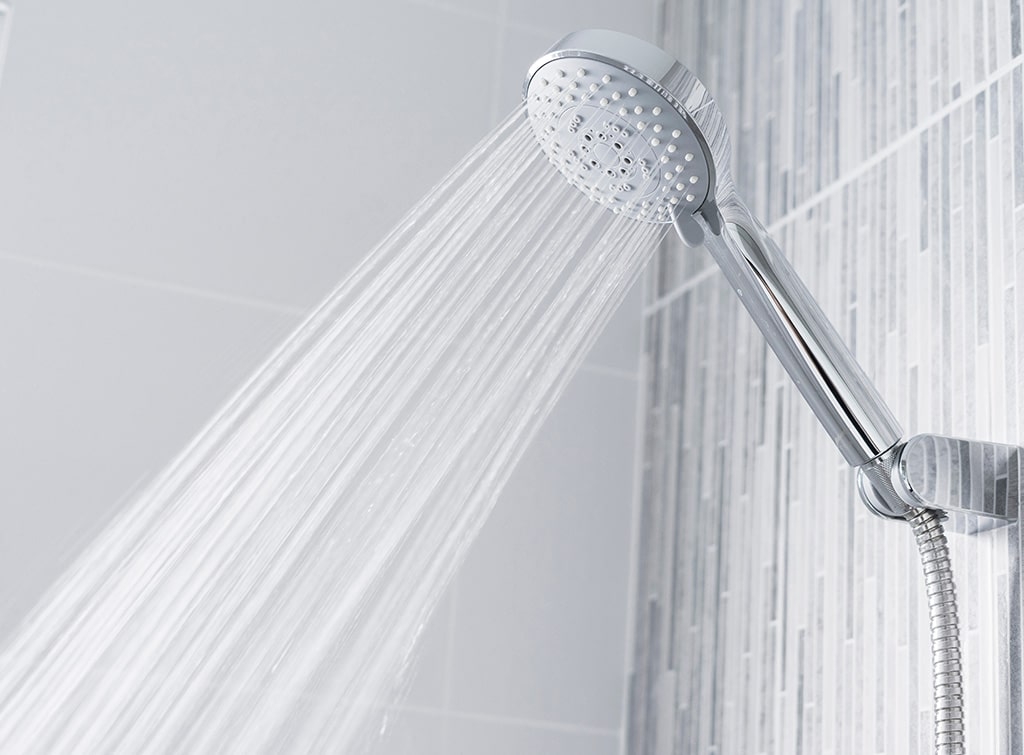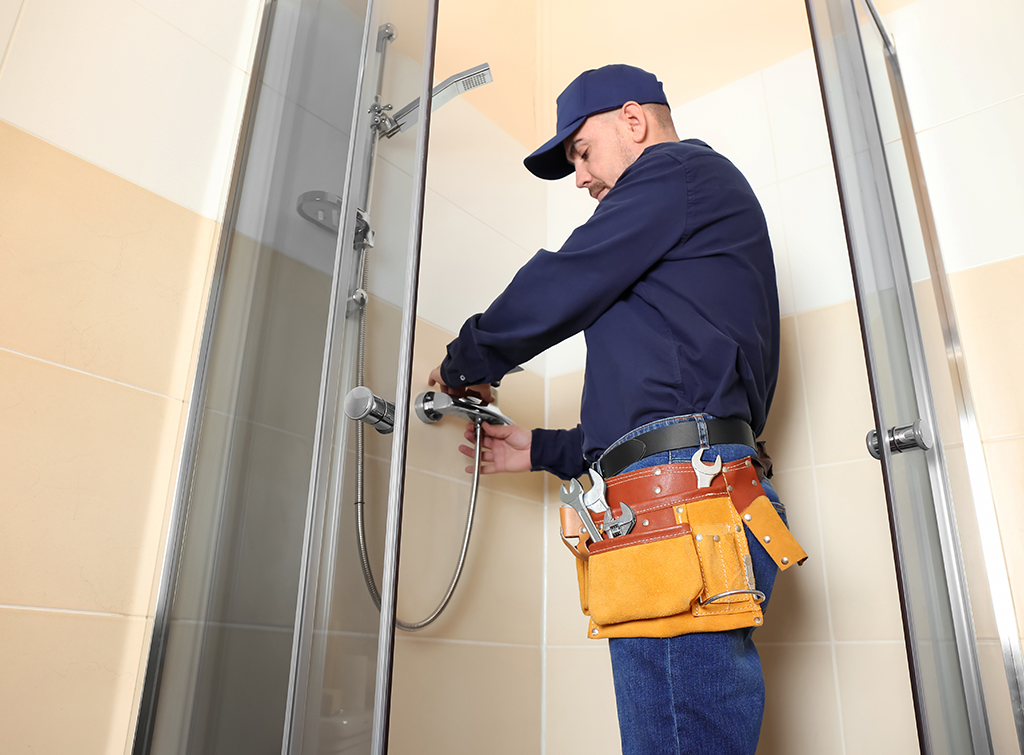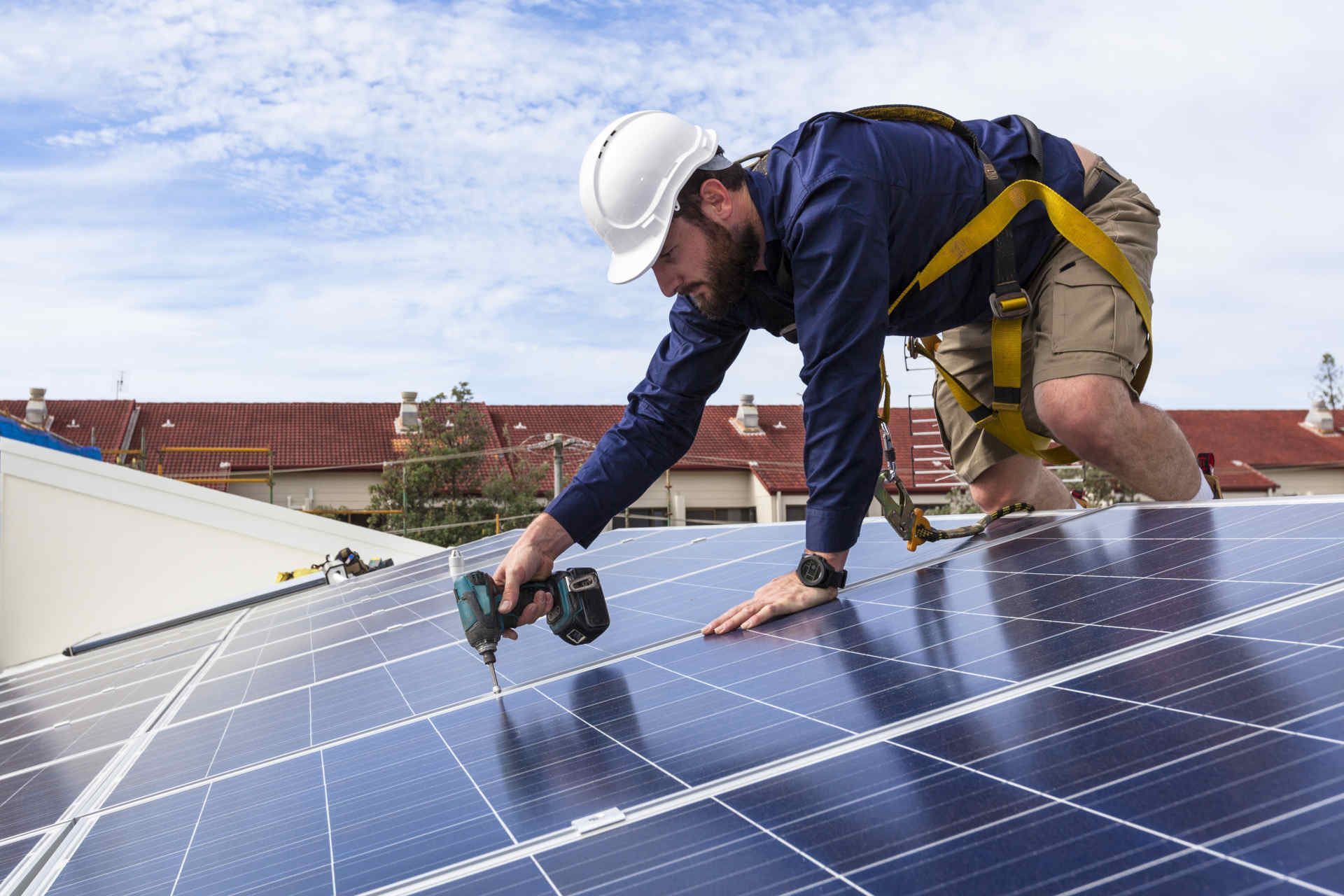Blog>Expert Advice>Types of showers and how to choose one for your home
Last updated: 19 November 2024
Types of showers and how to choose one for your home
We explore the types of showers available in the UK, including their pros, cons, cost, and compatibility, helping you to make the best choice for your home.
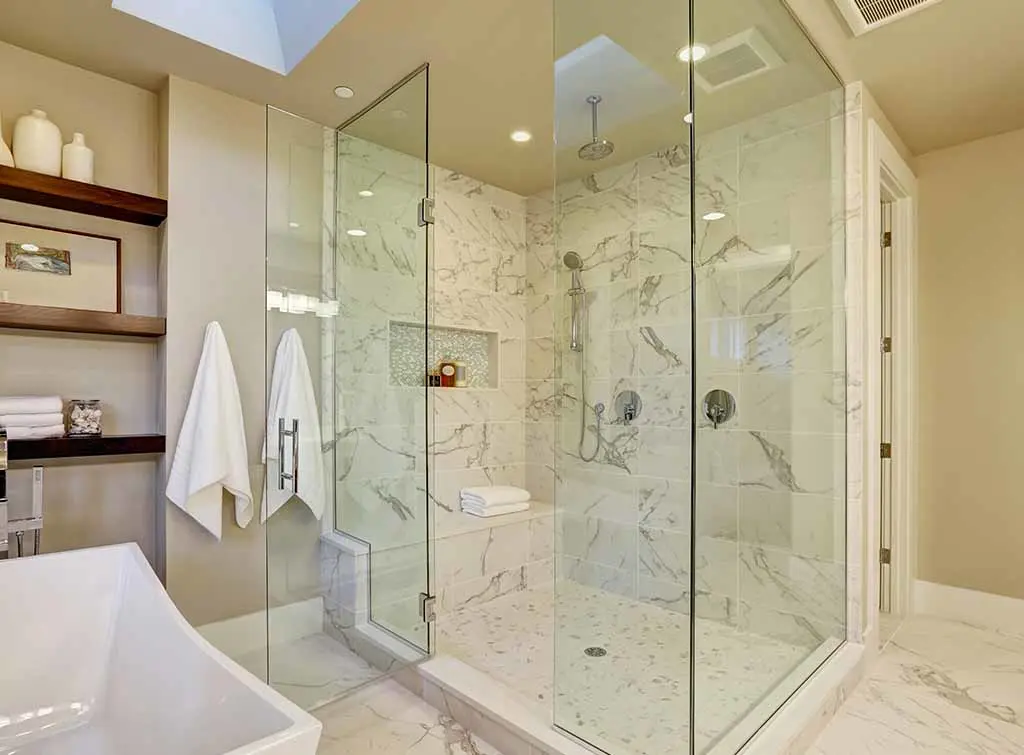
Understanding the difference between the types of showers available in the UK is one thing. Choosing the best shower for your home is another.
To do this, you need to know what makes a shower suitable for your home and your needs.
In this buying guide, you'll find all the important details in one handy place. So whether you're concerned about low-water pressure, affordability, energy-efficiency, or safety, we've got you covered.
First up, we'll take a quick look at the what to consider when choosing the best shower type for your home
Next, you'll find a clear overview of the main types of showers from electric to mixer, power to digital
Finally, we'll wrap up with typical running costs, ensuring you feel confident with your choice of shower
See the tradespeople we've checked and recommend for your job
Factors to consider when choosing a shower
No shower buying guide would be complete without first looking at the factors impacting the best type of shower for your home.
This includes water pressure, your heating system, shower enclosures, trays, valves, and types of shower heads.
1. Water pressure and water system
Water pressure is the force that pushes water through your home's pipework. It's measured in bars and impacts both the power and performance of your shower.
Your water system is the system that houses your home's water supply. UK homes will have one of three types:
Gravity-fed system
Found in older homes and often have low water pressure. They combine a cold water supply tank in the loft and a hot water cylinder, normally in an airing cupboard
Best suited to: Power showers (to boost the flow)
Can be paired with: Electric or mixer showers (but may need a pump for better pressure)
Combi boiler
A popular water system in UK homes, relying solely on mains pressure to provide hot water on demand. There's no separate hot water cylinder - just a wall-hung boiler.
Best suited to: Mixer showers
Unsuitable for: Power showers
Unvented system
Stores hot water at mains pressure, combining a hot water cylinder and boiler.
Best suited to: Most shower types, including mixer showers and digital showers
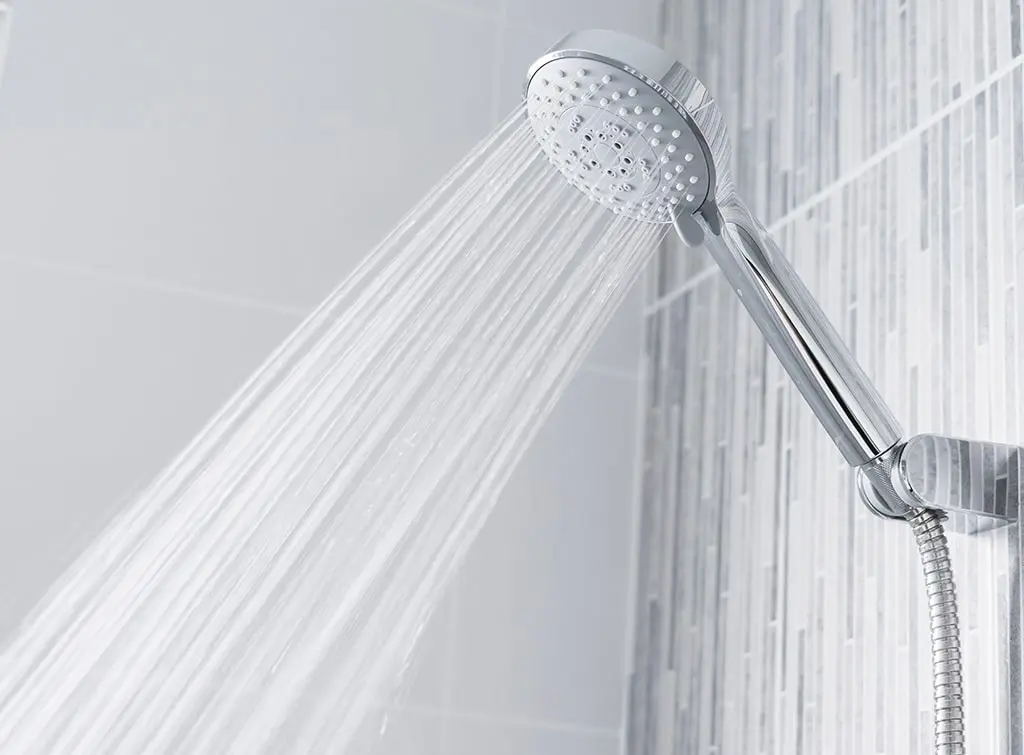
2. Shower heads
There are several types of shower heads available, and they have a big impact on your showering experience, so it's important to choose wisely!
Fixed, ceiling-mounted shower heads are great for a luxurious, hotel-type experience
Adjustable riser rail kits are ideal for families that need flexibility with the height and usage
Combination shower heads offer the best of both with fixed and hand-held options
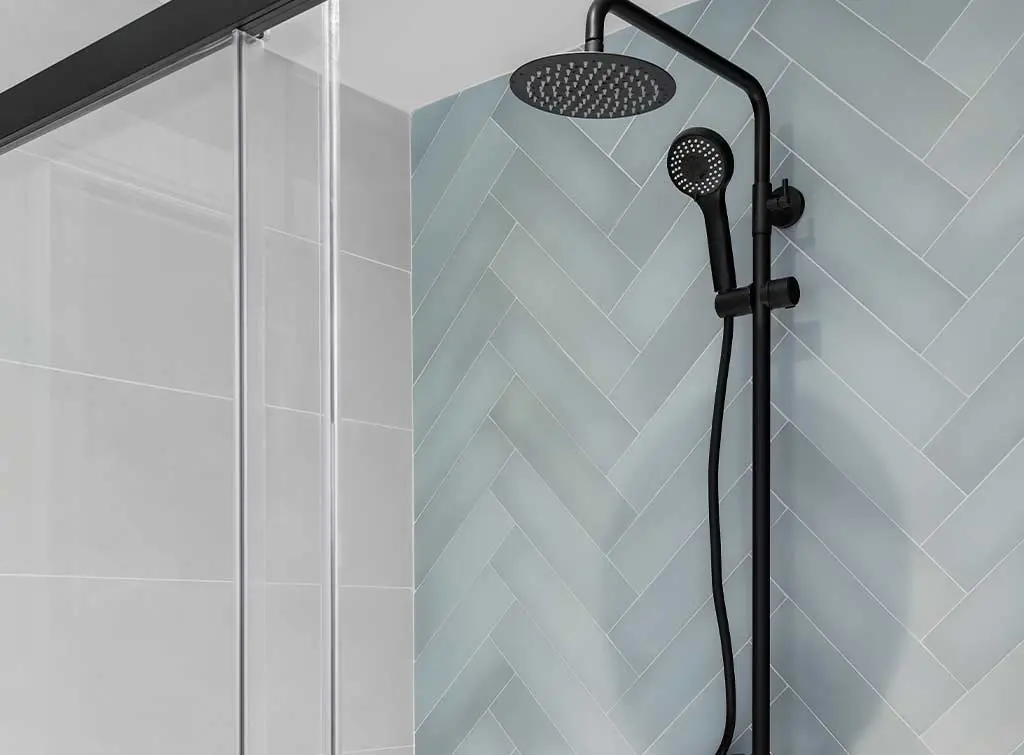
3. Shower valves
The shower valve controls the flow of water and the temperature, so picking the right type is important for both safety and comfort.
Thermostatic valves maintain a consistent temperature, reducing the risk of scalding, making them safer for families with children or older relatives
Manual valves allow you to mix the hot and cold supply manually - some people prefer this simplicity
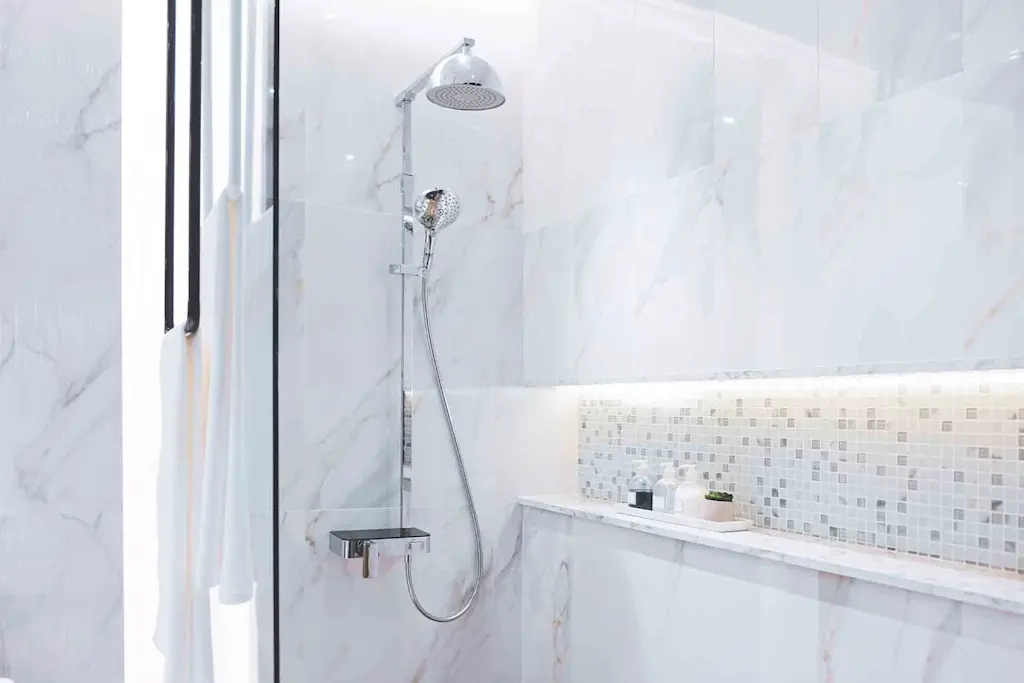
4. Shower trays
The shower tray you select will influence the look and feel of your shower.
Slimline trays sit flush with the floor, creating a seamless look, popular in contemporary bathrooms
Raised trays are easier to install and often allow for easier drainage
Low-profile trays or a fully tanked floor are often found in wet rooms, in minimalist designs, or where accessibility is a priority
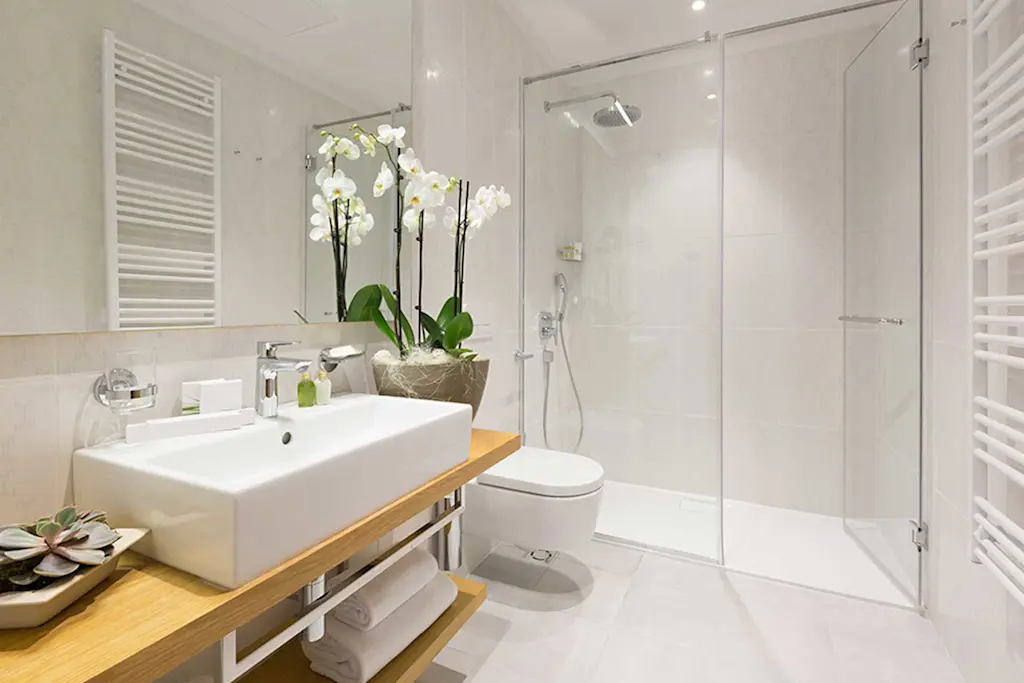
5. Shower enclosures
From walk-in and low-profile to corner or frameless, there's now more choice than ever when it comes to shower enclosure types.
Walk-in showers and low-profile enclosures are great choices for minimalist bathroom designs or where ease of access is key
Rectangular shower enclosures work well in larger bathrooms
Corner enclosures can be space-saving in a smaller area
Quadrant enclosures offer similar benefits to corner enclosures, but with rounded panels for a sleeker aesthetic
Frameless glass enclosures offer clean lines and minimal fittings, popular with modern bathrooms
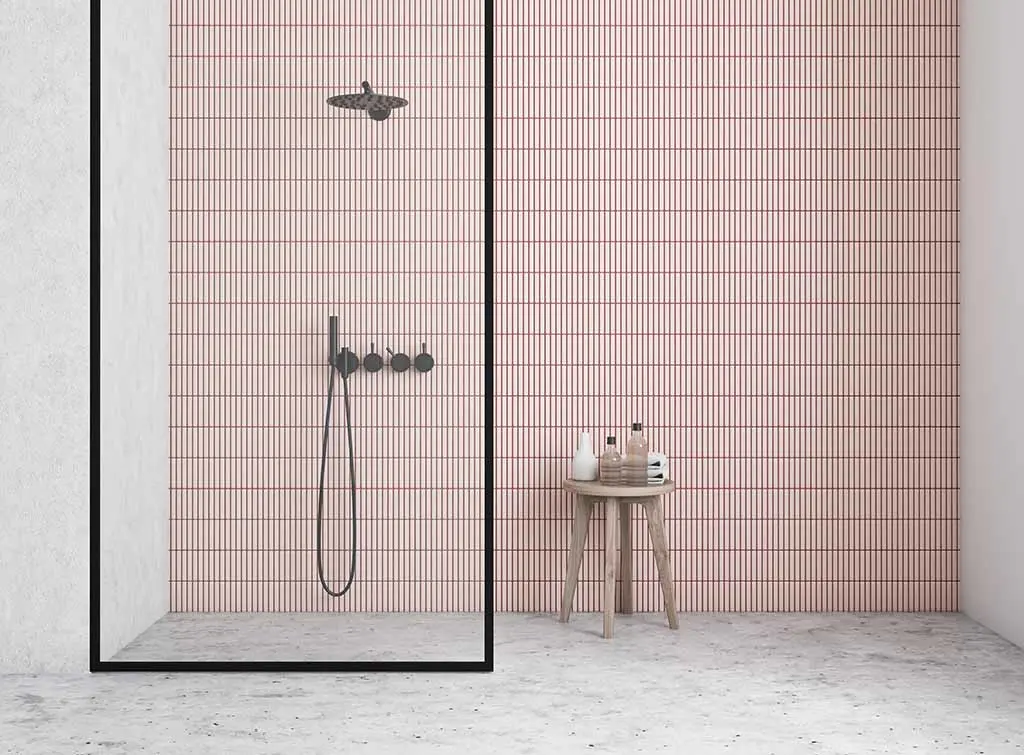
6. Style and design
Traditional or contemporary, matte black or brushed brass fixtures, the bathroom design rule book has no limits.
However, it's often the finishing touches that help you achieve the look you're after. Bookmark our bathroom trends and inspiration post below to see how it's done.
Bathroom trends and inspiration for [year]
We inspire your bathroom makeover by uncovering the bathroom trends gaining in popularity this year.
By carefully considering the factors in this section, you'll choose a shower that not only looks great but delivers the power and performance you want.
See the tradespeople we've checked and recommend for your job
Popular types of showers in the UK
Here, you'll be able to easily evaluate the pros, cons, compatibility, and cost of each type of shower, alongside the names of some popular brands.
Electric showers
Electric showers are great for on-demand hot water - heating water from the mains as it passes through the unit.
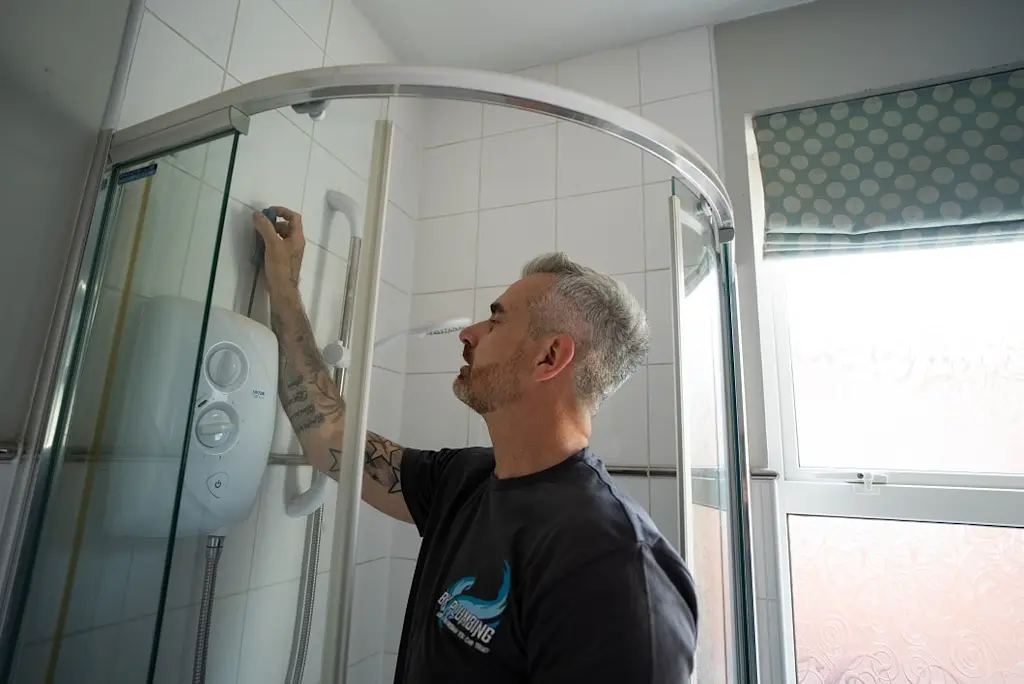
Pros of electric showers
Easy installation
Energy efficient, minimising water and power usage
Thermostatic controls to adjust the temperature
Compact, therefore suitable for smaller bathrooms
Can be suitable for homes with low water pressure, but may need an integrated pump
Hot showers are not affected by boiler issues!
Cons of electric showers
The flow rate can be lower than other types of shower
Electric showers tend to have a bulkier design
Compatibility of electric showers
In terms of compatibility, an electric shower is suitable for any home as it works independently from the boiler system. If water pressure is inconsistent, you may need a pump.
Average cost of an electric shower
An electric shower typically costs between £200
Labour costs for installation tend to average around £200
Popular brands
Mira
Triton
Aqualisa
Related content: The benefits of an electric shower

On Checkatrade, you'll only find trades who meet our high standards and pass up to 12 checks.
Mixer showers
Mixer showers can be either manual or thermostatic. Both blend hot and cold water to reach your chosen temperature. However, thermostatic mixer showers keep water at a constant temperature.
Pros of mixer showers
Provides consistent water temperature, reducing the risk of scalding, making them great for families
Good water flow
With thermostatic options, the temperature is not affected by water usage elsewhere in the home
Several styles available, including concealed designs
Suitable for most homes, but may need a pump in a low-pressure system
Cons of mixer showers
Homes with low water pressure may need a mixer shower with a pump
Mixer showers without a thermostatic value can experience fluctuations in temperature
Compatibility of mixer showers
Suitable for homes with a combi boiler or an unvented system with good water pressure. For gravity fed systems, a pump may be needed for better flow.
Average cost of a mixer shower
A mixer shower normally costs between £200
For installation, budget around £200
Popular brands
Mira
Hansgrohe
Bristan
What's the best mixer shower?
We explore the best mixer shower and the best thermostatic shower options to help you make the right choice for your home.
Power showers
Power showers do what they say on the tin - they deliver a powerful flow that won't disappoint.
Pros of power showers
Excellent water pressure due to their inbuilt pump
Consistent temperature
Sleek and stylish designs
Great for homes with gravity-fed systems
Cons of power showers
Use more energy and water than other types of showers
Not compatible with combi boilers
Compatibility of power showers
The major selling point of power showers is ... their power, making them an ideal choice for homes with gravity-fed systems with low water pressure. However, they are not compatible with combi boilers.
Average cost of power showers
The average cost of a power shower ranges from £350
Installation costs are typically in the region of £350
Popular brands
Mira
Triton
Aqualisa

We check the reviews on Checkatrade are from real people, and that trades meet our high standards.
Digital showers
The most modern type of shower in our selection. They are very similar to a mixer shower but with digital controls making them more eco and user-friendly. Some are compatible with smart home technology.
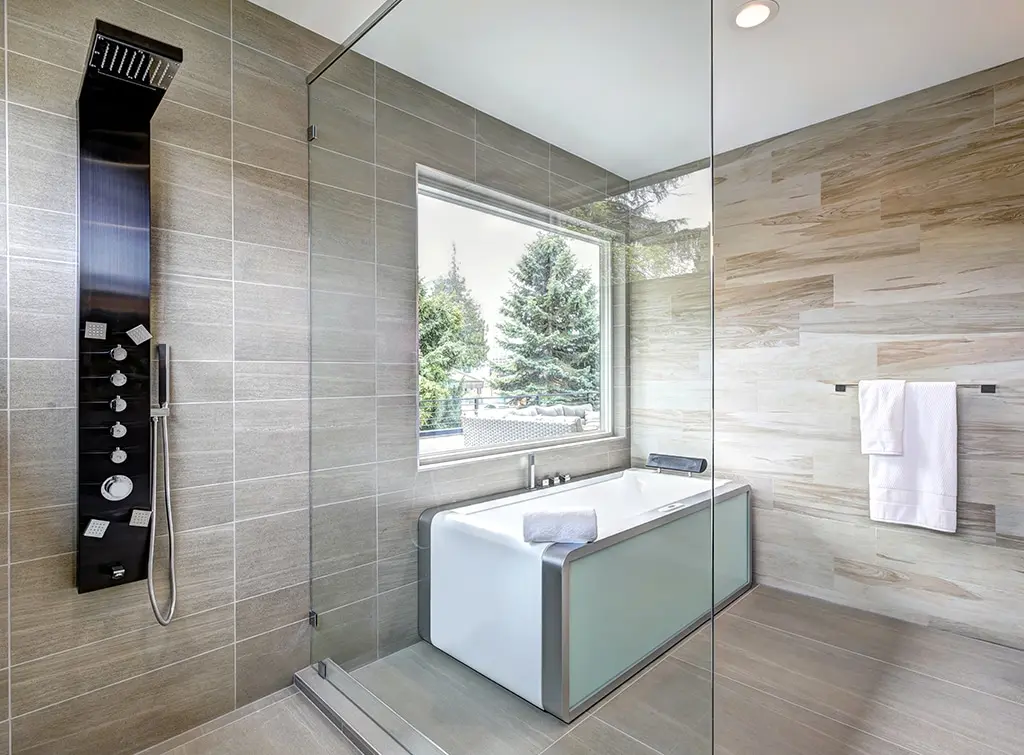
Pros of digital showers
Precise control over water temperature and flow
Customisable settings for added convenience
Sleek, modern design
Can work with most water systems
Some can be paired with smart technology
Cons of digital showers
More expensive than other types of showers
Certain models can be more complex to install
Needs stable internet connection for smart features to function
Compatibility of digital showers
Suitable for most homes including unvented systems and combi boilers. A pump may be needed in a gravity-fed system for better pressure.
Average cost of digital showers
Depending on the make, model, and specifications, a digital shower can range from £400
Similarly, installation costs can be much higher than other types of showers, averaging around £300+
Popular brands
Aqualisa
Grohe
Mira
Related content: The benefits of smart and digital showers
See the tradespeople we've checked and recommend for your job
Installation and running costs of different shower types
Installation costs
In addition to the shower unit cost, you'll need to budget for the installation cost. You'll find a summary of the average cost of installation below:
Electric shower: £200
Mixer shower: £200
Power shower: £350
Digital shower: £300+
Running costs
It's also wise to make sure you're happy with the ongoing running costs of the type of shower you choose.
While the unit price of electricity is typically higher than gas, electric showers are an energy efficent option as they only heat water when it's needed and tend to have a lower flow rate. Many also have an eco setting to minimise water waste and power consumption.
In contrast, the powerful water pressure generated by a power shower will use more water and energy, which can lead to higher running costs.
Shower installation: Cost breakdown [year]
Having trouble with your shower? We've put together this guide on the cost of installing a replacement shower unit (including the pump, pipework and shower head) to help you manage your budget for the project.
Key takeaways
There are several factors that will influence the suitability of different shower types for your home, including your water system and water pressure
The four main types of shower in the UK are electric, mixer, power, and digital. Each has its own pros, cons, compatibility considerations, and cost
Electric showers are more budget-friendly, ranging from £200; digital showers range from £400
Installation costs and ongoing running costs are an additional element to consider - on top of the cost of the shower unit itself
Some models are designed specificatlly for high or low pressure systems, so make sure to do your research
In summary
Broadly speaking, if affordability is a top priority, take a look at electric showers. Thermostatic mixer showers are great for families. Power showers are ideal if your home has low water pressure - although they cannot be used with a combi boiler. And if you like your tech, why not consider a digital shower for customisation and convenience?
If in any doubt, speak with an experienced plumber for help and advice on the best type of shower for your home.
Contact or pay a trade through Checkatrade and you’re covered by our 12-month guarantee of up to £1,000*

Find a qualified tradesperson for your shower installation
Find qualified and experienced plumbers for your shower installation by entering your postcode into the search box below.
For an electric shower, you'll need a plumber who is Part P certified or a qualified electrician.
See the tradespeople we've checked and recommend for your job
FAQs
Can I install a power shower with a combi boiler?
Power showers are generally not compatible with combi boilers. Power showers use a pump to move water at high pressure from a hot water cylinder to the shower. Combi boilers don't have a separate hot water cylinder, so the shower will run at mains pressure.
How much does it cost to install a power shower?
A power shower typically costs between £350 plus labour.
Are digital showers difficult to install?
Digital showers aren't complex to install, however, we always recommend hiring a qualified tradesperson to ensure the connections and controls are set up properly.
What type of shower is easiest to install?
Electric showers are typically the easiest to install. They heat cold water from the mains and therefore don't need to be connected to the hot water system.
How much does it cost to install a new shower in the UK?
The cost of a new shower can start from as little as £150 and range up to around £1,000 depending on the type of shower you choose, the specifications of the model, and the complexity of installation.
Which shower is best for a home with low water pressure?
A power shower or a pumped mixer or electric shower are good options for homes with low water pressure.
What is the difference between a thermostatic shower and a mixer shower?
A thermostatic shower keeps water a a constant temperature by automatically adjusting for changes in water temperature. This reduces the risk of scalding, making it safer for families.
A mixer shower combines hot and cold water manually to reach the desired temperature. It can be affected by other water outlets in the house, causing the shower temperature to rise or fall suddenly.
What is the difference between a mixer shower and a power shower?
A mixer shower combines hot and cold water for a steady flow. A power shower has a built-in pump to boost water pressure, making it ideal for low pressure systems.
What are the benefits of electric vs. mixer showers?
An electric shower heats water on demand - so it's always available when you need it. In this respect, it's also energy efficient - only heating what you need. Electric showers are also easier to install.
A mixer shower is good for homes with low water pressure, they look sleeker than electric showers, and those with thermostatic controls ensure a consistent water temperature.
What is the most energy-efficient shower option?
Electric showers are often the most energy-efficient option as they only heat water when used rather than heating an entire water tank.
Are electric showers cheaper to run?
Electricity is typically more expensive than gas, therefore electric showers are normally more expensive to run. However, they are an energy efficent option as they only heat water when needed - i.e. when the shower is in use.
What's the most affordable shower type for UK homes?
Electric showers are one of the most cost-effective types of shower. However, just be aware of the higher cost of electricity (than gas) when considering the cost of usage.
See the tradespeople we've checked and recommend for your job
